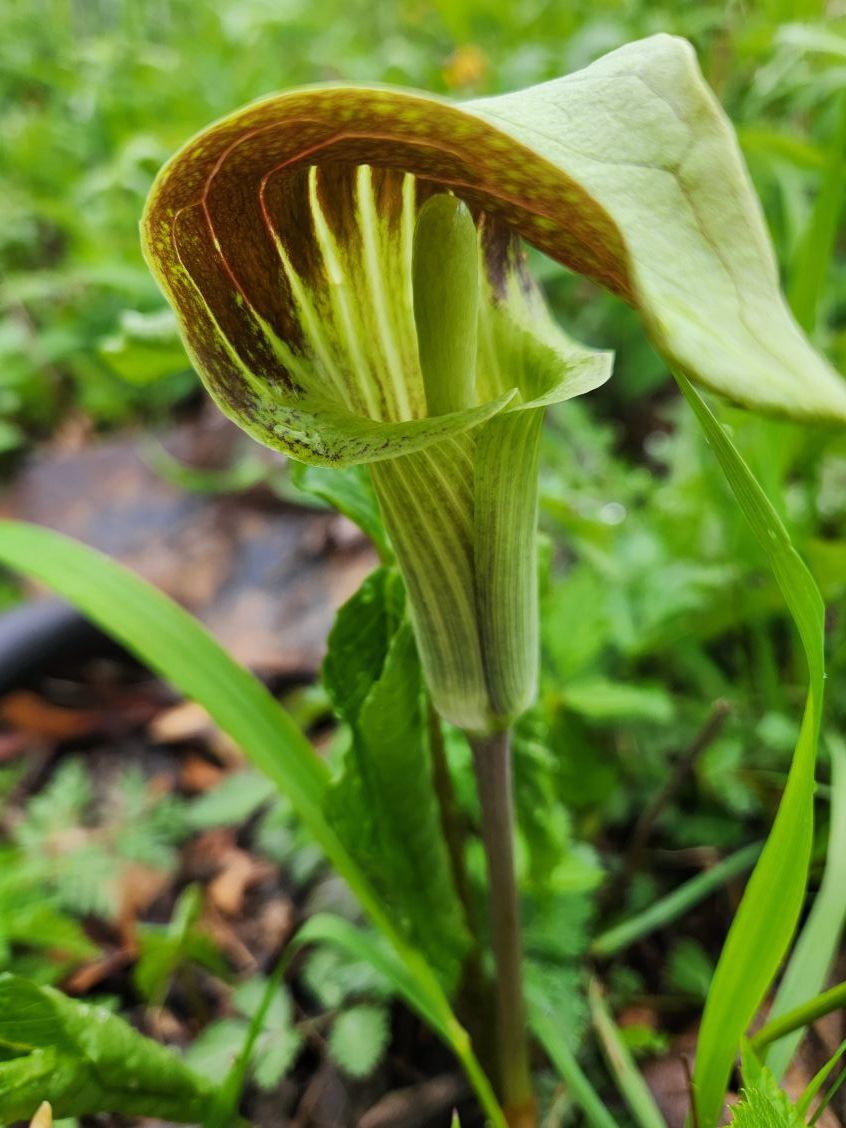Plant of the Week: Jack-in-the-Pulpit
posted
By: Kade Kaat, City of Madison Engineering Division
Come on Jack, let's learn about our plant of the week. This week's culprit...Jack-in-the-pulpit! This species is also known as Indian turnip or bog onion. However, don't let these yummy sounding names fool you. The plant contains oxalate crystals and is toxic to people and animals if consumed, causing pain and swelling. Make sure you're wearing gloves when handling this unique plant!
Jack-in-the-pulpit is a shade loving species found in rich, moist, deciduous woods and floodplains. It is a long lived perennial that can last over 25 years!
This species benefits many little critters in the ecosystem. It is pollinated by small flies and will flower from March through June. The bright red berries are also an attractive food source for birds that can handle them (thrushes being a primary example).
The plant initially produces only male flowers but becomes hermaphroditic as they further age (male flowers on the upper part of the spadix and female on the lower part).This neat species was found in a lush pollinator planting by Madison's Engineering Division on the west side.
Each week during the growing season, the Engineering Division focuses in on a Plant of the Week to raise awareness of different plants in the field that benefit our environment. The Engineering crews in the field tasked with conservation share expert insight on these plants and their benefits each week in a creative way!

